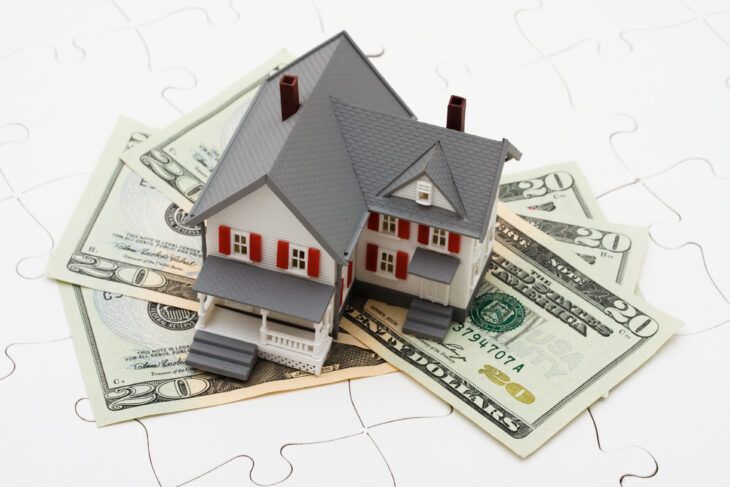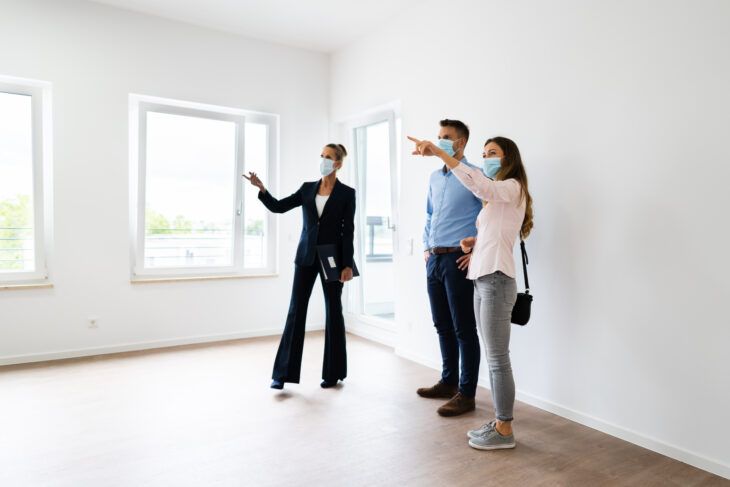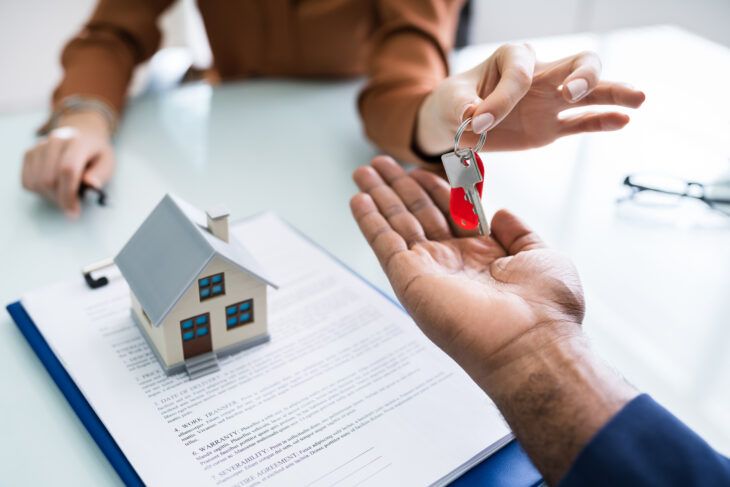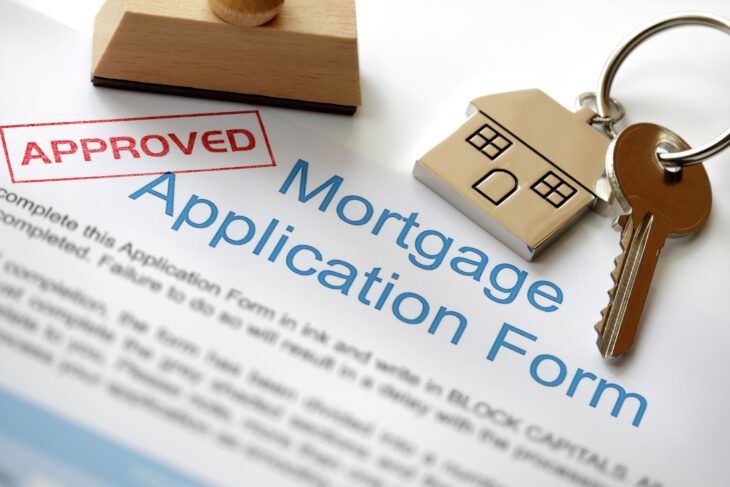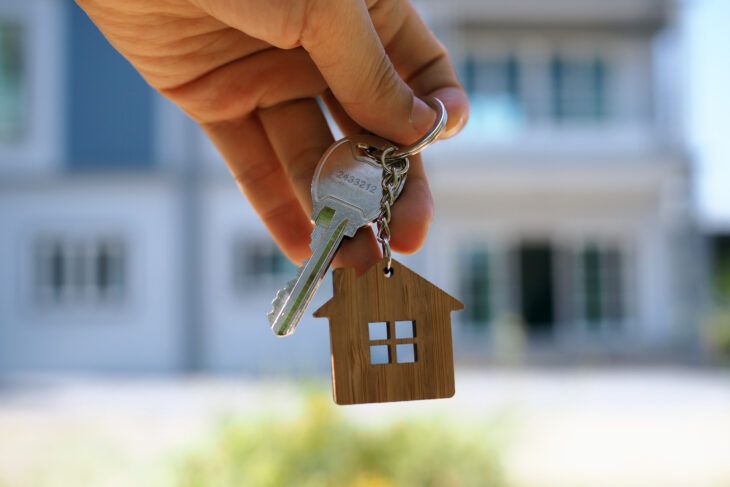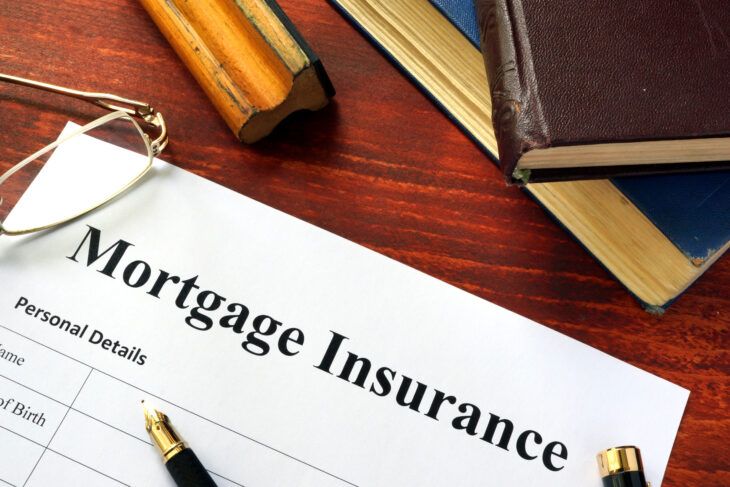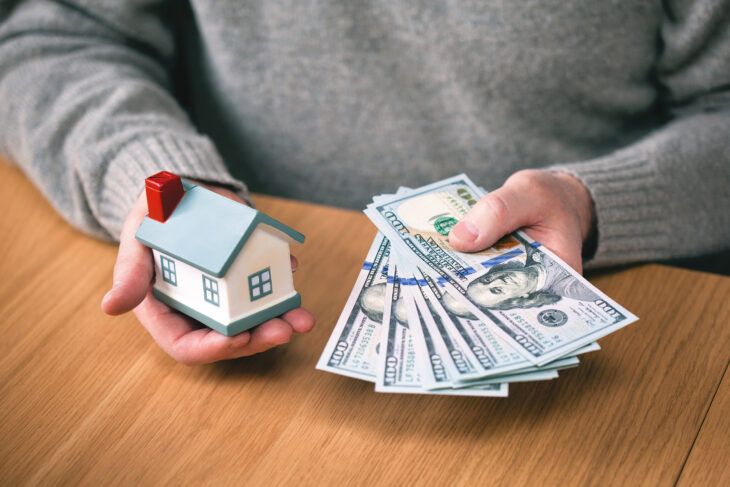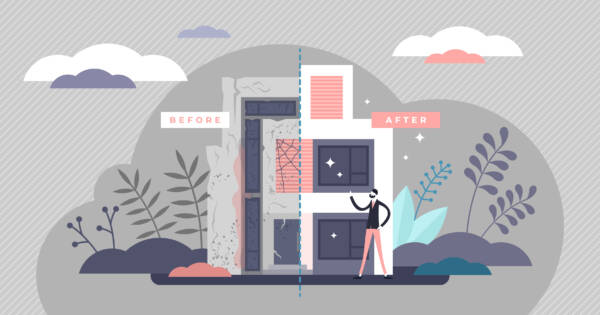It’s a well-known joke that basically every real estate agent will always tell you that now is a great time to buy a house. Apparently there’s literally never a bad time. However, with mortgage rates currently at truly historic lows, those realtors may be right. If you’re ready to take the plunge, we’re here to help.
If this is your first home purchase, there’s a good chance you could use some guidance. Home buying is a big process, involving a lot of paperwork and plenty of pitfalls. Take a look at some of the biggest home buying missteps newbies often make. Don’t fall victim to these classic home buying mistakes:
14. Making Major Life Changes While Shopping For a Mortgage
This one should be obvious, but plenty of people seem to ignore it. You should always seek out a mortgage pre-approval (more on that in a bit). While doing that, it’s can be a huge hindrance to be making major life changes at the same time. The pre-approval process analyzes your entire financial life. So don’t threw a wrench into things by suddenly changing your careers, starting your own business, getting divorced, or taking on more debt. Don’t open a new credit card or buy a new car in the middle of house shopping. They are major red flags for banks.
You should be aware that making a major life change can have a big impact on your house shopping. You may no longer qualify for a mortgage, even if you were pre-approved. It could also seriously impact how much house you can truly afford. That means all your previous research is useless, since you were looking at houses in a price range you can no longer afford. Do yourself a favor and keep the rest of your life (financial and otherwise) status quo until close the deal on your new house.
13. Skimping on the Down Payment
We know that saving for a down payment is hard. Especially if you’re aiming for the traditional 20% down. For many first-time home buyers, that is basically impossible. To counter that, many mortgage lenders now have terms for those who can only save 5% or 10% of the purchase price as a down payment. That may seem great for your home buying efforts, but beware the total costs.
Let’s consider a $500,000 home. A 20% down payment would mean saving up $100,000. That’s not a small amount for most people. On the other hand, a 5% down payment is only $25,000. That’s much more reasonable sum. However, you’ll end up paying the difference over the long haul. Let’s take a look at a five-year term at 1.99% on a 25-year mortgage.
- The $25,000 down payment will leave you with a balance of $413,577 after five years. You’ll pay $45,106 in interest in that time.
- The $100,000 down payment will leave you with a balance of $335,010 after five years. You’ll only pay $36,523 in interest.
12. Forgetting the “Extras”
Real estate professionals estimate that you need to set aside somewhere between 1.5% and 4% of the purchase price of your home for extras. It may seem like a small number, but 4% of the $500,000 home we used in our last example is actually $20,000. Not that small, really.
These extra fees can include things like a deposit, property insurance, title insurance, legal fees, home inspections, moving costs, and mortgage insurance (more on this in a minute too). And none of this includes the expenses related to general maintenance and upkeep of owning a home — landscaping, replacing appliances as they die, a new roof every 20 years, etc. When it comes to buying a house, the purchase price is hardly the only thing you need to budget for.
11. Not Seeing Enough Homes
Everyone wants to land their dream home. Just don’t mistake of falling in love with the first house you look at. There are tons of houses on the market, with new “For Sale” signs going up every single day. For most of us, buying a house is the single largest purchase of our lives. There’s no need to rush it. By looking at a variety of homes, you may discover something you didn’t even know you loved — a house feature, a property quirk, or just an entire neighborhood that you were completely unaware of.
You should conduct a very thorough search for you new potential home. There’s no need to settle for something you don’t quite love. At the end of the day, you want to feel extremely confident that you picked the perfect house for you. If that means spending a few extra weeks scouring online listings or scheduling extra walk-throughs, go ahead. Make those real estate agents really work for their money!
10. Seeing Too Many Homes
On the other hand, you can also overdo it. The housing market can move fast — really fast, in fact, in booming locations. So it’s also possible to pass up a great deal because you’re still wondering what else might be out there. Sitting on the fence can sometimes cost you.
You’ll still want to make sure you’ve done enough looking around to feel confident. You can compare multiple houses to get a sense of their overall value. Once you have a realistic view of the local market though, it’s prudent to ask fast. In hot housing markets, some homes only last a couple days before someone snaps them up. That means you may have to act quickly when you finally find that perfect house.
9. Overextending Yourself
This is a pretty obvious piece of advice, but plenty of people end up ignoring it. Once you analyze your finances and create a budget for buying a house, stick with it. It’s dangerously easy to start feeling like you can swing a little bit larger mortgage payment. Or that the homes for $600,000 are just that much nicer or bigger than the ones in your $500,000 price range. This mistake can come back to bite you in many ways.
Even if you do manage to meet the mortgage payments, you’ll probably find your budget tight everywhere else. That might mean driving a ten-year-old car, skipping vacations, or spending your free time clipping coupons just to buy groceries. You might think those sacrifices are worth it for your dream home. However, that penny-pinching lifestyle may get old in a hurry. The ultimate risk of over-extending yourself is that you start struggling to make your mortgage payments. If that happens, you’ll be kicked out of your dream house in a flash. To avoid these potential issues, make a realistic house budget — and then stick to it.
8. Not Getting Everything in Writing
This is something that veteran home buyers already know. There are a ton of conditions or qualifiers when it comes to buying a house. Whether it’s promised repairs or renovations, proof of financing, or something as simple as “you guys are leaving the kitchen appliances in the house, right?” make sure you get it in writing. If it’s not the sale contract, it might as well not exist. Verbal promises and handshake deals are a sucker’s deal, when it comes to buying a home.
An experiences real estate agent really provides value in this area. We’ll talk a bit more about using a professional later in this article. Until then, just know that the legal documents that come with buying a home are often long and complicated. There’s no shame in admitting that you need help making sense of it all.
7. Shopping Without a Pre-Approval
Many first-time home buyers just want to get out there and start looking for a house. However, it’s important to get a mortgage pre-approval letter from a lender first. A pre-approval lets others know that you are serious. It’s proof that you already have the backing of a bank. The letter also gives you an idea of how much house you can afford. The last thing you want is to fall in love with a home and then find out that you can’t afford the mortgage required to make a bid.
Without a mortgage pre-approved, most sellers won’t even give you the time of day. Some really high-end homes won’t even let you view the place unless you can send them proof that you can afford it. For more reasonably priced homes, many experienced real estate agents will ask you to get pre-approved — or at the very least, pre-qualified — with a mortgage lender before they’ll take you shopping.
Figure out what you can afford first. Then get a custom letter from the lender, detailing what you plan to spend.
6. Fixating on a 30-year Fixed Rate Mortgage
When I bought my first home years ago, I got a 30-year fixed rate mortgage. I didn’t really know about the other options. I simply got the contact of a mortgage broker from my realtor, and he automatically tried to apply for a the 30-year mortgage for me. However, there were other options that would’ve made more sense for me financially at the time.
If you know you will be in the house for a while, consider a shorter (15-year) loan. You can also consider adjustable-rate mortgages (ARM). These are hybrid mortgages that allow you to lock in a rate for the first five years, and then the rate is adjustable once a year after that. These so-called 5/1 ARMs can be great for first time home buyers. You’ll get a lower rate during those five years, in exchange for a fluctuating rate afterwards.
5. Some Advantages to Think About
According to the National Association of Realtors, younger or first-time home buyers tend to sell and move much sooner than older, repeat buyers. Most people apply for a 30-year mortgage but only get five or seven years out of it.
Really look at your timeline. Consider all of your options. If you decide to go with a 5/1 ARM, make sure you’re aware of the risks involved. Some good advice is to look for a loan that caps the rate increases. It’s possible to find mortgages that won’t raise the rate more than 0.5 percent each year once the variable starts. A loan with a cap on the rate increases will prevent you from seeing a huge change in your payment, even with changes in the interest rate.
4. Other Mortgage Options
A 5/1 ARM wasn’t the only ARM available to me either. There are 10/1 ARM and 7/1 ARMs too. The first number indicates how long the initial “locked” period is and the second number is how often the rates change. In the case of a 10/1, I could’ve gotten a mortgage that had a guaranteed fixed rate for the first ten years that then adjusts once a year after ten years.
There are more options still. PenFed, for example, has a 5/5 ARM that only adjusts the rate once every five years. For some, not having their rates continually change all the time can give them a bit more peace of mind. Any one of those hybrid mortgage options would have worked out for me better financially. Unfortunately, I didn’t know they existed. You should explore all of your options when applying for any mortgage, to ensure you’re getting the best deal possible.
3. Hire the Right (or Wrong) Real Estate Agent
Most real estate professionals just want to close your deal smoothly and quickly so they can move onto the next transaction. As a first-time homebuyer, you really need someone who is more patient. You’ll want them to guide you through the whole process. Like I mentioned, my realtor just sent me the contact of a mortgage broker and let me figure it out myself. Don’t you want someone who can give you some more guidance than that?
Like any other product or service, it pays to shop around for a real estate agent. Find someone with a style that fits your own. If you meet with anyone who seems like they are ignoring your wants or pushing their own agenda, don’t feel bad bailing on them entirely. One of the best ways to find a reliable real estate agent is to ask more experienced friends or family members if they have any recommendations.
2. Mortgage Insurance May Need to Be Paid
Not every first-time home buyer knows that they will probably need to pay mortgage insurance. It’s required if you can’t come up with at least a 20% down payment. And let’s be honest, that’s harder than it’s ever been right now, with skyrocketing housing prices and mostt flat wages.
However, the consequences of not knowing this beforehand can be huge. Mortgage insurance can be 1-to-2% of the whole mortgage cost. We are talking about a difference of thousands of dollars here for a typical mortgage. Obviously it’s much more ideal to find a way to meet that 20% requirement. However, if it’s simply not possible for you, make sure you budget in mortgage insurance costs to your home buying expenses.
1. Avoid the Temptation to Raid Your Emergency Funds
You really ought to do your best to keep your emergency fund intact when you buy a home. This is true even if you have to pay for mortgage insurance. Many first-time home buyers use all of their savings when they close the deal. After all, buying a house is an expensive process. There’s the down payment, legal fees, real estate fees, etc, etc.
However, there’s a reason you setup the emergency fund. And emergencies will happen. I bought a new home last year. The deal had been closed for literally a week and a half before the world’s economy was shut down due to the pandemic. I was lucky that my emergency fund was solid enough for me to pull through the storm. Now the world seems to be much more optimistic about the future and I’m going to be just fine. Things might’ve been very different for our family, though, if I raided the emergency fund to fund the home purchase.
The Bottom Line
For most people, buying a house will be the largest purchase of their entire life. It can be a decades-long commitment, depending on the length of your mortgage. The whole process can be complicated — especially for inexperienced buyers. There are multiple mortgage options to think about, real estate agents to choose from, and a seemingly endless list of financial questions that you’ll have to answer.
The last thing you want is your new home to turn into a money pit. To avoid this, do your homework ahead of time. Shop around and gain pre-approval for a mortgage. Find yourself a trustworthy real estate agent to help guide you through the process. Don’t forget about the extra expenses of owning your own home, so keep that emergency fund topped up. If you can keep making smart financial decisions, your new home will be a place of immense pride — as opposed to causing you constant stress.


